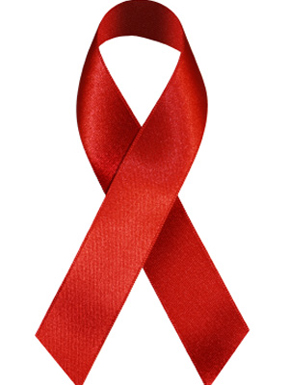Talking Toward a Cure
BU commemorates World AIDS Day with week of events

In the 27 years since AIDS was first reported in the United States, in Los Angeles, many perceptions and realities of the disease have changed. The most visible population affected by AIDS is no longer gay men, but men and women living in sub-Saharan Africa; the highest incidence rates are not domestic, but international; and the diagnosis, once a short-term death sentence, has become a manageable way of life for many with access to advanced drugs and health-care systems. For many college students, HIV and AIDS have literally become a foreign problem.
“I believe that college students often see HIV/AIDS as an issue that won’t affect them here at school,” says Lauren Slater (CAS’10), president of UNICEF at Boston University. “Although people are careful, there is still a lot more caution that should be taken. It is accepted within the health-care community that all sexually active individuals should be tested for HIV/AIDS once every six months — I don’t think that this is something that people my age seriously think about, or practice, often enough.”
To commemorate World AIDS Day today, December 1, UNICEF and other student groups are sponsoring a week of discussions, performances, and free HIV testing. The events begin with a candlelight vigil on Marsh Plaza this evening and conclude on Friday with a Coffee and Conversation session with Dean of Students Kenneth Elmore. The intention, Slater says, is to remind students that HIV and AIDS can affect them and to recognize the need for continuing research toward a cure.
The U.S. Centers for Disease Control estimates that approximately 56,300 people were newly infected with HIV in 2006 and that approximately 21 percent of the estimated HIV-positive population in the United States is unaware of being infected.
“While we can’t fix all of the world’s problems as college students, I think it is important to make as positive an impact as possible,” Slater says. “There are currently 33 million people living with HIV/AIDS, with 2.7 million new infections each year. Until the number of new infections is reduced, transmission is prevented, a cure is found, and all those suffering receive the aid they deserve, this issue will remain important.”
The World AIDS Day commemoration begins today at 5 p.m. with the candlelight vigil on Marsh Plaza. On Tuesday, December 2, the discussion HIV Stops with Us will be held from 7 to 9 p.m. in the Kenmore Classroom Building. On Wednesday, December 3, a benefit concert featuring Love in Stockholm will be held from 8 to 10 p.m. at BU Central. Free rapid HIV testing will be available on Thursday, December 4, from 10 a.m. to 4 p.m. on the third floor of the GSU; that evening, Elmore will moderate the panel discussion Leadership in the Global Response to HIV/AIDS from 8 to 10 p.m. in the College of General Studies, Room 511. Later that night, students are encouraged to wear red to Jammin’ Thursdays, a weekly dance party held in the GSU Back Court from 10 p.m. to 2 a.m. Friday’s Coffee and Conversation will take place from 3 to 5 p.m. in the Howard Thurman Center.
All events are free and open to the public and are sponsored by UNICEF at BU, CSC’s Project Hope, Spectrum, Face AIDS, ONE, Hug Don’t Hate, the Undergraduate Public Health Association, and Student Health Ambassadors.
Jessica Ullian can be reached at jullian@bu.edu.
Comments & Discussion
Boston University moderates comments to facilitate an informed, substantive, civil conversation. Abusive, profane, self-promotional, misleading, incoherent or off-topic comments will be rejected. Moderators are staffed during regular business hours (EST) and can only accept comments written in English. Statistics or facts must include a citation or a link to the citation.